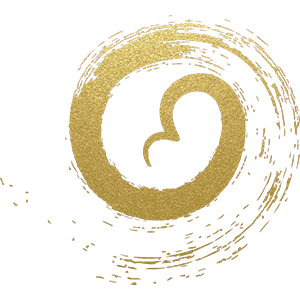Three part course
The Path of the Soul
threshold Moments of Incarnation in Early Embryo Life
with Jaap van der Wal
Jaap van der Wal is a physician who specialised in the research and teaching of anatomy and embryology. He attempts to make a bridge between both medical biology and natural science, and a more spiritual view of man and nature.
This workshop looks at:
This workshop looks at:
- Are mind and body, duality, polarity and/or unity?
- What do we actually do when we are embryos?
- The dynamic morphology of human conception
- The embryo makes the mother pregnant
- The 'animate phase' of early gestation
- The organisation of the 'I'
workshop CONTENT

workshop introduction
The Path of the Soul
Critical Moments of Incarnation in Early Embryo Life
session 1
mind and body
Mind and body, duality, polarity and/or unity? What do we actually do when we are embryos?
The gestures and actions by which we bring our body into form are expressions of our soul: our mind and consciousness do not come from the body but appear through the body.
Soul, consciousness is not related to certain organs but permeates the whole body and all its functions. It is in this pervasive polarity that human conception takes place: spirit connects (incarnates) with the substance of matter through the sperm AND the egg.
The gestures and actions by which we bring our body into form are expressions of our soul: our mind and consciousness do not come from the body but appear through the body.
Soul, consciousness is not related to certain organs but permeates the whole body and all its functions. It is in this pervasive polarity that human conception takes place: spirit connects (incarnates) with the substance of matter through the sperm AND the egg.
session 2
Conception – Nidation -Cardiogenesis
A dynamic morphology of human conception makes clear and plausible that conception is a dramatic and crucial moment of incarnation and phenomenologically has nothing to do with "a sperm fertilising an egg".
The first gestational week ends with nidation (implantation) marking another crisis moment in development. Implantation is dramatically dependent on the mother's receptivity towards the embryo: it is the embryo that makes the mother pregnant!
In the third week, a further an even deeper incarnation in the body becomes manifest: the animate phase with the formation of the heart and the development of the so-called middle germinal layer.
The first gestational week ends with nidation (implantation) marking another crisis moment in development. Implantation is dramatically dependent on the mother's receptivity towards the embryo: it is the embryo that makes the mother pregnant!
In the third week, a further an even deeper incarnation in the body becomes manifest: the animate phase with the formation of the heart and the development of the so-called middle germinal layer.
session 3
The Centre
The so-called triune of tripartite body emerges with an outer wall an inner wall and, most importantly, an interiority represented by the development of fascia and blood in that middle, our anatomical and psychological interior.
The body becomes indivisible and individual: from the 'growing out' of the plant, it progresses to the 'growing in' of the animal. Some attention will be paid to the possibility that in humans a third turning point in development can be recognised, namely that the human form starts to distinguish itself from the animal form by creating a centre. An anatomical-morphological but also psychological centre that marks our self-awareness. The organisation of the I (mind).
The body becomes indivisible and individual: from the 'growing out' of the plant, it progresses to the 'growing in' of the animal. Some attention will be paid to the possibility that in humans a third turning point in development can be recognised, namely that the human form starts to distinguish itself from the animal form by creating a centre. An anatomical-morphological but also psychological centre that marks our self-awareness. The organisation of the I (mind).
-
Entry/intermediate level
-
Power Point Presentations
-
Demonstrations
-
Q and A with presenter
-
Three hours of teaching
-
Life long access to recordings
-
Certificate of Attendance on request
Learning Outcomes
- Gain an insight into the phenomenological approach to the earliest embryological stages
- Understand the link between biology and psychology in the context of early life
- Learn to see how the embryo can be considered a human
being incarnating in a number of essential steps
who can this benefit
- Birth practitioners who would like to gain a deeper understanding of current embryology
- Anyone who would like to understand the ways in which their own primal beginnings may have shaped who they are today
join course
£70
One off payment
Includes :
-
Access to Live Workshop
-
Life time access to course content
-
Certificate of Attendance on request
course & Gold Membership
£199/yr
Billed annually
Includes :
-
Access to this Live Workshop and recordings
-
Access to all our Live and Recorded classes for 1 year
-
Access to Monthly Support Groups
-
20% discount on all other courses
